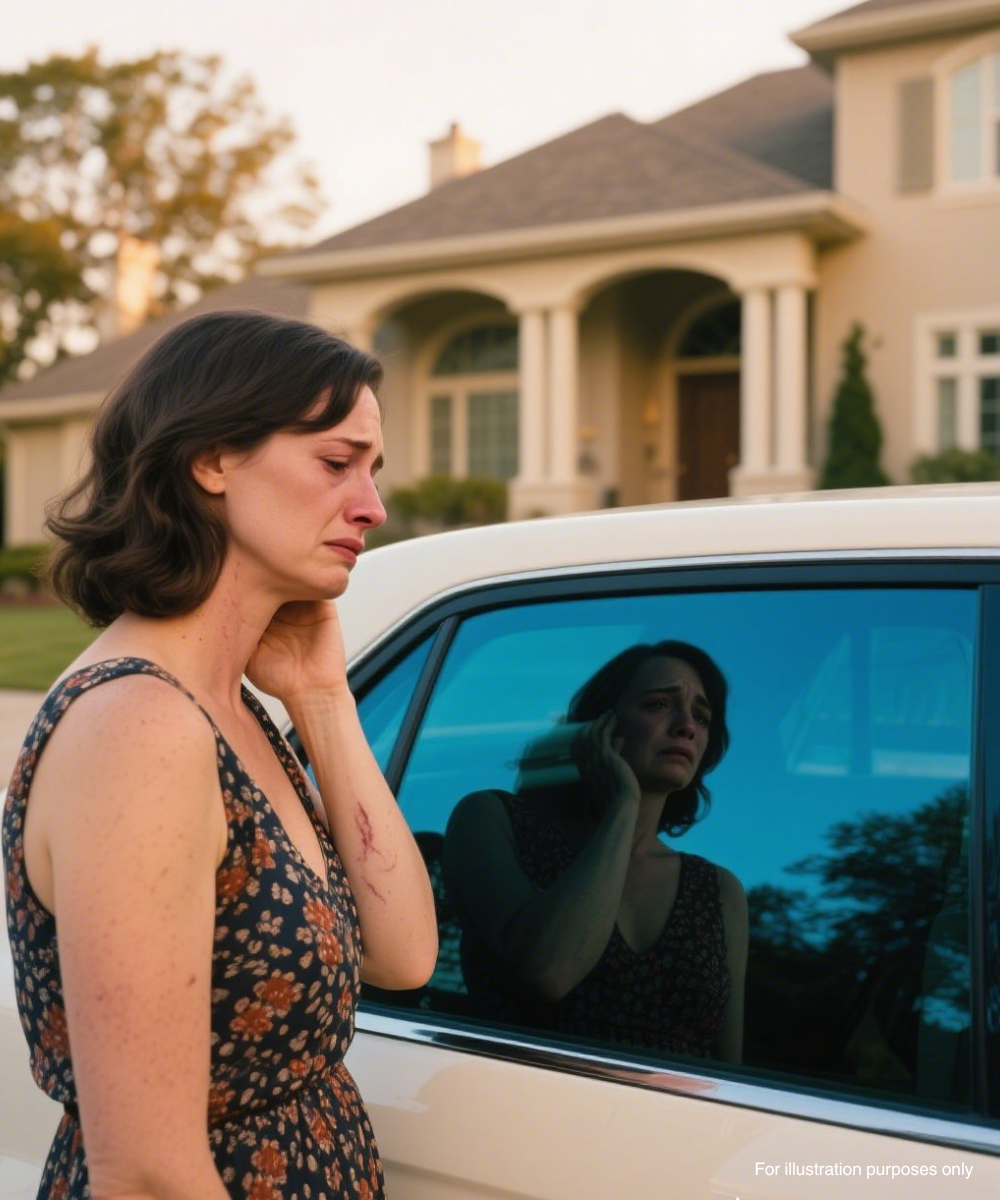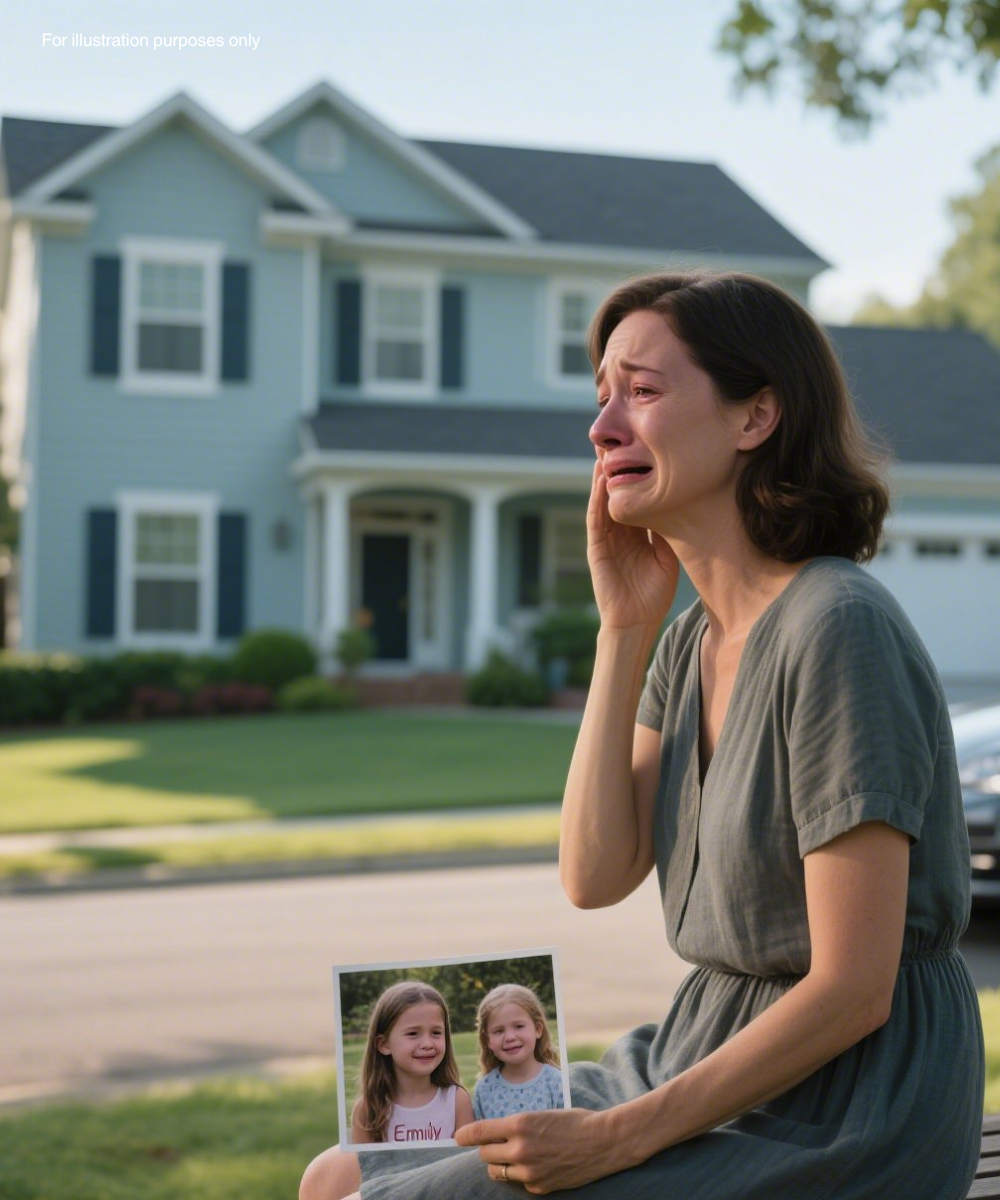“Mom, Don’t Visit Us Again.”
That’s what my daughter Emily said as I was putting on my shoes by her front door.
I blinked. “Honey, what? Did I do something wrong?”
She didn’t flinch. Her voice was flat, rehearsed. “Greg doesn’t like your visits. You ruin our image in this neighborhood. The people here… they notice things. And let’s be honest, Mom. Have you looked at yourself? The clothes? The hair? It’s… embarrassing. I don’t want Olivia growing up around that.”
I stood there frozen, one shoe on, one hand gripping the doorframe like it might hold me together.
Embarrassing. That word sat like a stone in my throat.
She closed the door without another word. I heard the lock click.
That night, I drove home in silence. The tears didn’t start until the freeway lights blurred and I could no longer see clearly.
I didn’t come from money. I’ve been a grocery store cashier for 27 years. Not glamorous, but honest. My regulars know me by name. I keep granola bars in my locker to give to hungry kids. I wear faded jeans and shoes with worn soles. My lipstick is from the dollar store, but I smile with it just the same.
Every second Saturday, I’d take the bus across town to bring Olivia coloring books, sprinkle muffins with pink sugar, and stickers with stars and kittens. I sat cross-legged on the floor and listened to her imaginary fairy stories like they were the gospel truth.
I love her more than anything.

But after Emily asked me to stop coming, I listened. I didn’t want to embarrass her. I didn’t want to make my granddaughter’s life harder because her grandma didn’t wear pearls and silk scarves.
So I stopped knocking.
But I didn’t stop loving.
Every Wednesday afternoon, I took my break early and walked to Olivia’s preschool, staying just outside the tall black fence. Just far enough not to be noticed. Just close enough to see her run into the sun, backpack bouncing.
And when I saw her giggling with her friends, I’d whisper, “I love you, baby.”
She never heard. But I always hoped maybe, somehow, she felt it.
That’s how it went. For three months.
Until Monday morning.
My phone rang as I was slicing bread for toast. A number I didn’t know. I wiped my hands on my apron.
“Hello?”
“Mrs. Miller?” A man’s voice. Kind, careful. “I’m a lawyer. You’d better sit down.”
Greg was dead.
A car accident on a rainy freeway. Emily was in shock. Olivia had been with her nanny, thank God.
And suddenly, the polished, curated life Greg built with its shiny perfection… cracked.
Emily had no job. She’d never needed one. Their accounts were frozen. His family wanted control over Olivia’s future—and custody. They claimed Emily was emotionally unfit.
And so the lawyer called me.
“I believe,” he said gently, “you’re Olivia’s maternal grandmother. Her only blood relative with stable employment and no legal complications.”
Me. The one who wasn’t good enough to be seen.
Emily was in court that Thursday, pale and tight-lipped, her parents-in-law seated behind her like vultures in velvet.
They were pushing for Olivia to live with them. Said Emily was dependent. Unfit to handle grief, parenting, and real life. That Olivia needed stability and “a proper upbringing.”
I sat in the back, heart pounding, hands trembling.
Then the judge turned to me.
“Mrs. Miller. Do you have anything you’d like to say?”
I stood.
Cleared my throat.
And told the truth.

That I was a grocery store cashier. That I lived in a two-bedroom apartment over a laundromat. That I packed my own lunch in Tupperware from the 90s.
That I didn’t have polished nails or a fancy car.
But that I loved Olivia.
That I’d loved her since the moment she was born. That I never missed a birthday, that I still had the crayon drawings she gave me folded in my wallet. That I’d stopped visiting because I was told my love wasn’t elegant enough.
And that still, every week, I stood outside her preschool fence, whispering love into the wind, hoping she could feel it.
The courtroom was silent.
Then, slowly, Emily began to cry.
Not polished, pearl-clutching tears. But deep, raw sobs.
“I was ashamed,” she whispered. “Not of you, Mom. Of myself. Of how far I’d drifted… and how I let someone tell me you weren’t enough.”
She turned to the judge. “I don’t want Olivia raised by people who think love has to look like a luxury ad. I want her raised by people who show up. Who show love even when they’re pushed away.”
Today, Olivia is ten.
She lives with her mom, but spends every weekend at my place. We bake muffins. We draw rainbows. We talk about hard things and big feelings.
Emily and I are healing.
Not through grand gestures, but quiet ones.
Like the day she brought me a new hairbrush and asked if she could style my hair.
Or the day she dropped off a new blouse—blue, my favorite—and said, “You deserve to feel seen.”
Sometimes, love doesn’t look like roses and ribbons.
Sometimes, it looks like a dollar-store sticker. A whispered word through a fence.
Or a woman standing tall in a courtroom, wearing secondhand shoes but speaking first-class truth.
Because love isn’t about what you wear. It’s about how you show up.
